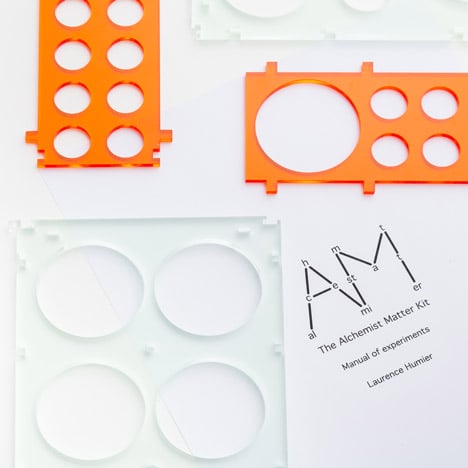
Laurence Humier's Alchemist Matter Kit teaches children basic chemistry
This kit launched by Belgian designer Laurence Humier includes sets of containers filled with materials that children can mix together to learn simple chemical reactions.
Milan-based Laurence Humier designed the Alchemist Matter Kit as an educational tool for children aged five to 12 years old, following a series of workshops she led to introduce young people to chemistry.
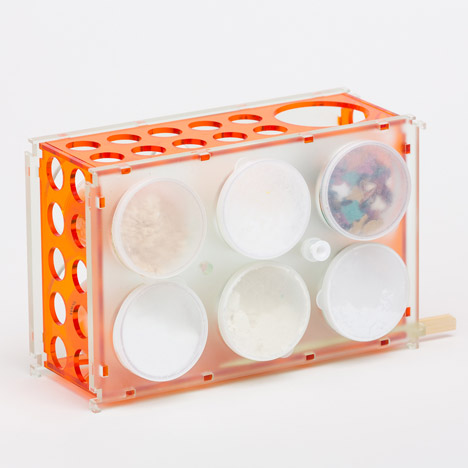
"Since 2011, I have conducted research on Do-It-Yourself materials with chemists," said Humier.
"Over the last two years, I have held workshops in different museums including Cité des Sciences et de l'Industrie in Paris, Maker Faire in Rome and New York, the Science Festival in Genoa, Espace des Inventions in Lausanne, the Triennale Design Museum in Milan, and the Smithsonian Cooper-Hewitt Museum in New York."
Launched on crowdfunding platform Kickstarter earlier this month, the full kit is spilt into three sections: Drop of Ink, Sink or Float and Stop the Spot.
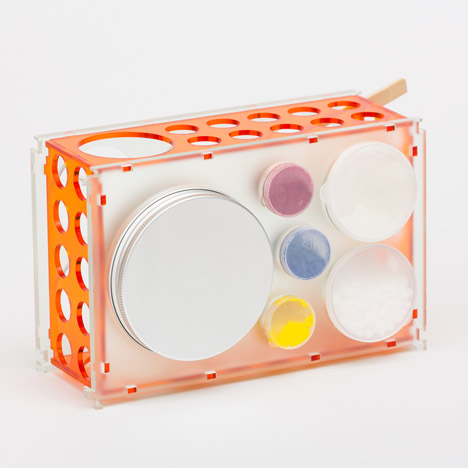
Each comprises a set of laser-cut acrylic sheets that click together, creating a modular plastic test tube rack to hold containers filled with different raw materials.
Accompanying manuals guide users through the step-by-step processes to create simple chemical reactions that culminate in visual products or results.
By mixing these components under adult supervision, children can produce a single material capable both of floating in water and quickly sinking to the bottom, or another substance that removes a stain instantaneously.
Once the material samples have been used, the containers can be refilled with the same substances or others found around the home recommended in the instruction books.
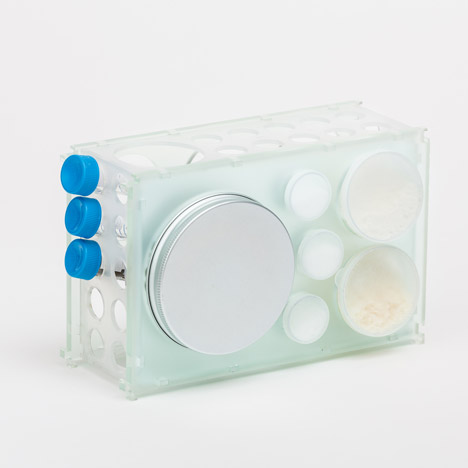
"Following the instructions in the manual, you will experiment with components that look similar to the naked eye but react differently — the same way that alchemists, the ancestors of chemists, did," said the designer.
Alchemist Matter Kit has so far raised $560 (£350) towards its Kickstarter funding target of $30,000 (£19,000).
Backers will be given access to the CAD files that can be used to laser-cut the basic plastic components that form each kit.
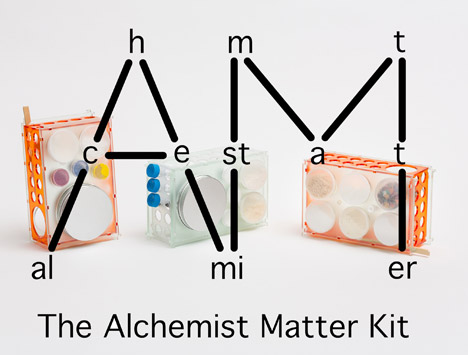
By pledging more money, backers will receive a fully assembled kit complete with materials.
DIY design kits were recently in the news when New York's MoMA acquired five different digital products that all focused on user interaction and input.
Earlier this year, the institution showcased a selection of products originally funded via Kickstarter, including a tiny slide projector and pen that draws in 3D.